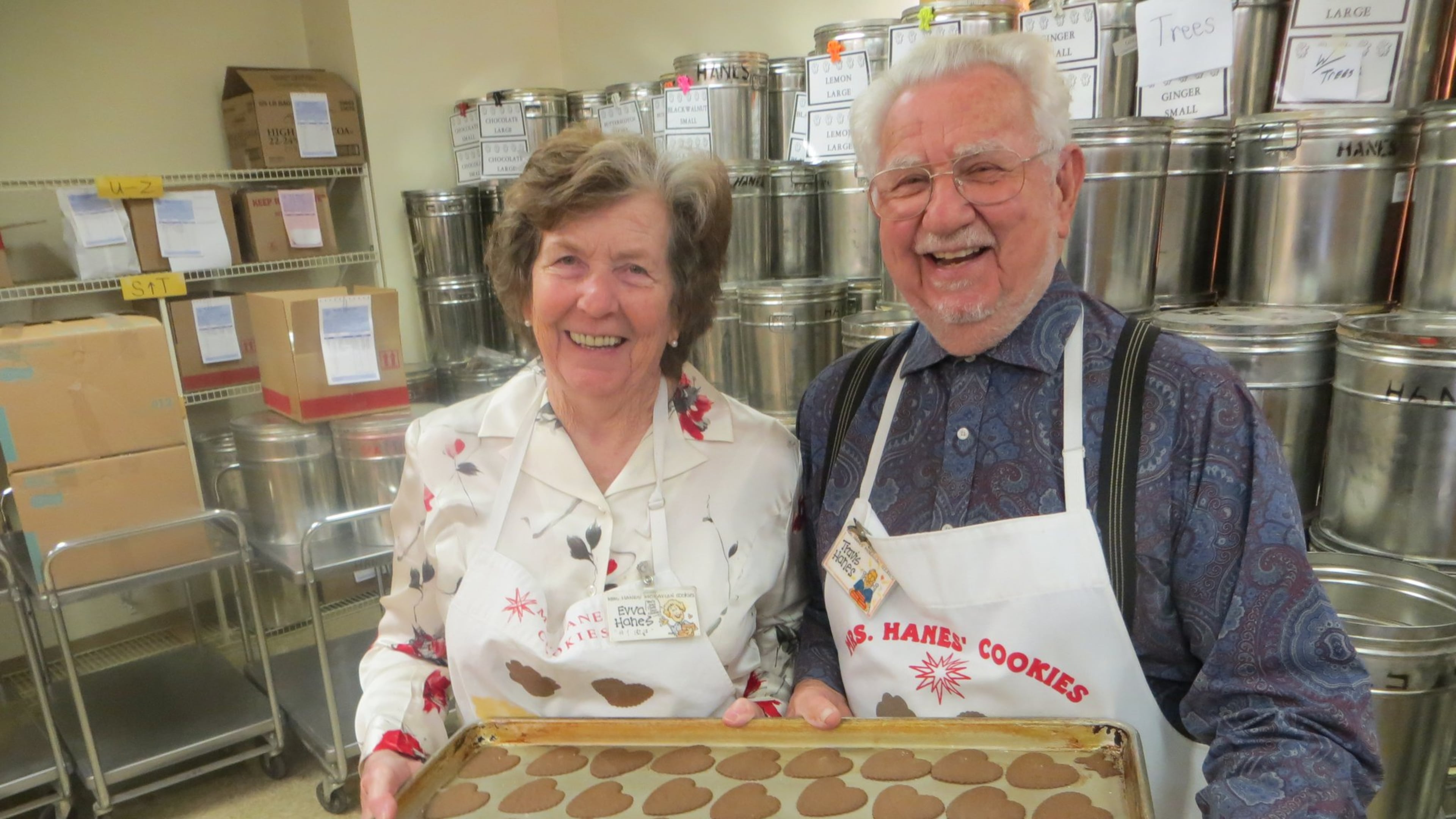Follow North Carolina’s Moravian culinary trails

WHERE TO STAY
Historic Brookstown Inn, 200 Brookstown Ave., Winston-Salem, N.C. 336-725-1120, brookstowninn.com.
WHERE TO EAT
Mozelle's Southern Bistro, 878 W. Fourth St., Winston-Salem, N.C. 336-703-5400, mozelles.com.
Mrs. Hanes' Moravian Cookies, 4643 Friedberg Church Road, Clemmons, N.C. 336-764-1402, hanescookies.com.
Old Salem Museum and Gardens, 600 S. Main St., Winston-Salem, N.C. 336-721-7300, oldsalem.org.
VISITOR INFORMATION
Winston-Salem Convention and Visitors Bureau, 200 Brookstown Ave., Winston-Salem, N.C. 336-728-4200. To learn more about the city's three culinary trails: visitwinstonsalem.com.
One of 82-year-old Evva Hanes’ earliest memories is helping her mother bake Moravian sugar cookies in a wood-burning stove.
The crispy, potato chip-thin cookies were sold to supplement the income from the family dairy farm near Winston-Salem, and little Evva was eager to do her part. Because of the uneven heat distribution in a wood-burning stove, the cookies had to be moved from the bottom of the oven to the top during baking. Timing was crucial.
“I could tell by the smell when it was time for the rack to be raised and when it was time for them to come out of the oven,” Hanes said.
Hanes loved making cookies. In fact, she loved it so much she never stopped. In 1962, she opened Mrs. Hanes’ Moravian Cookies with her husband, Travis Hanes, and the couple is still making cookies today at their family-owned and operated company in Clemmons, a Winston-Salem suburb. What began as a home-based business that sold cookies to the community has grown into a small but successful enterprise that ships worldwide.
The company is a frequent stop for visitors nibbling their way along the Moravian Cookie Trail, one of Winston-Salem’s three virtual culinary trails that celebrate the region’s Moravian food roots.
Moravian refers to a small group of Germanic people, pre-Reformation Protestants, who fled to America in the 18th century to escape religious persecution in what is now the Czech Republic. They first arrived in Pennsylvania, but eventually spread to other states, including North Carolina, where they established a communal society on 100,000 acres of wilderness known as the Wachovia Tract. With Teutonic efficiency, these pious, peaceful settlers carved an orderly oasis from an inhospitable environment.
They brought their culinary traditions with them.
Evva Hanes is a seventh-generation Moravian cookie baker and has passed the art of cookie making down to two of her four children.
Hanes’ cookies are still made by hand from an old family recipe, but the wood-burning stove was replaced long ago by commercial convection ovens, so Hanes no longer has to depend on her keen sense of smell to get delicious cookies batch after batch.
But she still samples them all day. The bakery produces six flavors: ginger (the most popular), lemon, chocolate, butterscotch, black walnut and the delicate sugar cookies that take Hanes back to her childhood.
Tours are conducted by her husband, also 82, a gregarious sort who’s always ready with a humorous story or a witty one-liner. If he had a full, white beard, he would be Santa Claus’ twin, and he’s just as jolly.
As Travis Hanes leads a tour group to a large window so they can see how the mostly female bakers expertly roll the dough and cut it into hearts, flowers and other shapes, he jokes that he has no choice but to be an accommodating boss.
“When you’ve got 45 ladies around with rolling pins telling you what to do, you just say, ‘Yes, ma’am,’ and do it.”
Now that’s one smart cookie.
Meanwhile, at Winkler Bakery at Old Salem Museum & Gardens, a living history museum that showcases Moravian life 1766-1866, a costumed interpreter uses a long-handled paddle to remove a Moravian sugar cake from a 200-year-old wood-fired oven.
The aroma of this buttery, cinnamon-laced confection is enticing, and visitors clamor for a sample. It’s a favorite stop along the newly launched Moravian Sugar Cake Trail.
Mashed potatoes are the secret to this moist, light-as-a-cloud coffee cake. Moravians traditionally serve it at Easter breakfast, but it’s delicious anytime.
Bakeries present many temptations, but this one was established in 1807 to remove them. The first bakery in Old Salem was in the single brothers’ workshop, but the church had concerns about flirtations that might arise between the single brothers and the unchaperoned single sisters who visited daily to purchase bread. The solution was to open a bakery that would be run by married brother Christian Winkler.
In this theocracy, church elders had a say in members’ choice of spouse and in their career path.
Those who prefer a savory indulgence to a sugary treat can follow Old Salem’s timeworn cobblestone streets to the Old Tavern, a restaurant on the Moravian Chicken Pie Trail. This double-crust pie (don’t call it pot pie!), packed with tender chicken and smothered with rich gravy, is hearty enough to satisfy a lumberjack.
A sojourn along Winston-Salem’s trio of Moravian culinary trails offers not only a taste of traditional food, but a taste of the history and culture of a resourceful people that helped shape North Carolina.

